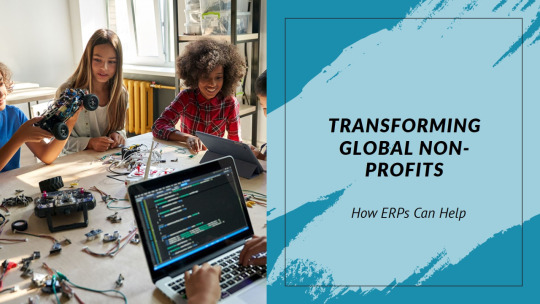Don't wanna be here? Send us removal request.
Text
Supply Chain Solutions for Hidden Inventory !

A supply chain management solution that optimizes inventory levels and visibility
What is excess hidden inventory and why is it a problem?
Excess hidden inventory is the inventory that is not accounted for in the official records of a business, but still exists in the supply chain. It can be caused by various factors, such as inaccurate demand forecasting, poor inventory tracking, human errors, supplier issues, or theft. Excess hidden inventory can have negative impacts on a business, such as:
Increased inventory carrying costs, such as storage, insurance, taxes, and obsolescence.
Reduced cash flow and profitability, as excess inventory ties up capital that could be used for other purposes.
Lower customer satisfaction and loyalty, as excess inventory can lead to stockouts, delays, or quality issues.
Higher environmental footprint, as excess inventory consumes more resources and generates more waste.
According to a study by the Aberdeen Group, the average manufacturer has 11.4% more inventory than it needs, and this excess inventory costs the company 25% of its total inventory value each year. The same study also found that the top performers in inventory management had 15% less inventory, 17% stronger fulfilment rates, and 35% shorter cash-to-cash cycles than their peers.
Read more@ https://sunbridgeglobal.com/supply-chain-solutions-for-hidden-inventory/
0 notes
Text
How ERPs Can Transform Global Non Profits

Introduction
Non profit organizations operate in a complex and dynamic environment, where they have to manage multiple projects, donors, volunteers, and stakeholders across different regions and cultures. They also face challenges such as limited resources, regulatory compliance, transparency, and accountability. To overcome these challenges and achieve their mission, non profits need to adopt efficient and effective systems that can streamline their operations, optimize their performance, and enhance their impact. One such system is an enterprise resource planning (ERP) software, which is a comprehensive and integrated solution that can manage all aspects of a non profit’s business, from finance and accounting, to human resources and fundraising, to project management and reporting.
Nightmares without ERPs
Without an ERP system, non profits can face many nightmares that can jeopardize their success and sustainability. Some of these nightmares are:
Lack of visibility and control over financial data, leading to errors, fraud, and mismanagement of funds.
Inability to track and report on project progress, outcomes, and impact, leading to poor performance, donor dissatisfaction, and loss of funding.
Difficulty in managing multiple currencies, tax laws, and regulations, leading to compliance risks, penalties, and reputational damage.
Waste of time and resources on manual and redundant processes, leading to inefficiency, duplication, and frustration.
Difficulty in collaborating and communicating with internal and external stakeholders, leading to silos, conflicts, and missed opportunities.
Read more@ https://sunbridgeglobal.com/how-erps-can-transform-global-non-profits/
0 notes
Text
Empowering CFOs with AI: Copilot’s Impact on Strategic Decision-Making

How Copilot helps CFOs save time, reduce errors, and drive value with AI-powered automation and analytics
Introduction
The role of the chief financial officer (CFO) has evolved significantly in the digital age. CFOs are no longer just responsible for managing the financial operations and reporting of their organizations, but also for leading strategic initiatives, driving innovation, and creating value for stakeholders. However, many CFOs still face challenges in fulfilling their expanded responsibilities, such as dealing with complex and fragmented data, performing tedious and error-prone tasks, and lacking timely and relevant insights to support decision-making. These challenges can limit the CFO’s ability to focus on the strategic aspects of their role and create value for their organizations.
That’s where Copilot comes in. Copilot is an AI-powered platform that empowers CFOs to shift their focus towards strategic decision-making by automating routine tasks and providing actionable insights. Copilot connects to various data sources, such as ERP, CRM, and BI systems, and uses natural language processing and machine learning to extract, analyze, and present financial information in an intuitive and interactive way. Copilot enables CFOs to automate tasks such as data collection, consolidation, reconciliation, reporting, and forecasting, and to access insights such as trends, anomalies, benchmarks, and recommendations, all from a single dashboard. Copilot helps CFOs save time, reduce errors, and drive value with AI-powered automation and analytics.
Read more@ https://sunbridgeglobal.com/empowering-cfos-with-ai-copilots-impact-on-strategic-decision-making/
0 notes
Text
How Microsoft ERP enables digital identity for retail B2C platforms

Digital identity is the online representation of a person or an organization, which includes their personal information, preferences, interactions, and transactions. In the retail sector, digital identity is crucial for building trust, loyalty, and engagement with customers, especially in the B2C (business-to-consumer) segment. However, managing digital identity can be challenging for retailers, as they have to deal with multiple data sources, platforms, and regulations. How can retailers leverage digital identity to create seamless and personalized customer experiences across channels and devices?
One possible solution is to use Microsoft ERP (enterprise resource planning) software, which is a suite of integrated applications that helps businesses manage their core processes, such as finance, supply chain, sales, and customer service. Microsoft ERP can also enable digital identity for retail B2C platforms, by providing a unified and secure data platform, a flexible and scalable identity management system, and a rich and intuitive user interface. In this article, we will explore how Microsoft ERP can help retailers achieve these benefits and improve their customer satisfaction and retention. Read more@ https://sunbridgeglobal.com/how-microsoft-erp-enables-digital-identity-for-retail-b2c-platforms/
0 notes
Text
Discover the power of Dynamics 365 for Finance and Operations, a cutting-edge cloud-based solution that brings a multitude of advantages over traditional on-premises ERP systems. Let’s delve into the key aspects that make its cloud-based nature truly remarkable:
Accessibility: Dynamics 365 for Finance and Operations, being cloud-based, allows users to access it from any corner of the world with an internet connection. This liberates them from the constraints of a fixed physical location or office, empowering remote work and fostering seamless collaboration among teams spread across different locations.
Scalability: With the cloud infrastructure supporting Dynamics 365, scalability becomes a breeze. Businesses can effortlessly adjust their usage to match their evolving needs, without the burden of hefty upfront investments in hardware or infrastructure.
Flexibility: Cloud-based solutions provide enhanced flexibility in comparison to on-premises systems. The provider takes care of delivering updates, patches, and new features automatically, guaranteeing that organizations can always enjoy the latest functionality without the inconvenience of manual upgrades.
Read more@ https://sunbridgeglobal.com/cloud-based-solution/
0 notes
Text
Empowering CFOs with AI: Copilot’s Impact on Strategic Decision-Making

How Copilot helps CFOs save time, reduce errors, and drive value with AI-powered automation and analytics
Introduction
The role of the chief financial officer (CFO) has evolved significantly in the digital age. CFOs are no longer just responsible for managing the financial operations and reporting of their organizations, but also for leading strategic initiatives, driving innovation, and creating value for stakeholders. However, many CFOs still face challenges in fulfilling their expanded responsibilities, such as dealing with complex and fragmented data, performing tedious and error-prone tasks, and lacking timely and relevant insights to support decision-making. These challenges can limit the CFO’s ability to focus on the strategic aspects of their role and create value for their organizations.
That’s where Copilot comes in. Copilot is an AI-powered platform that empowers CFOs to shift their focus towards strategic decision-making by automating routine tasks and providing actionable insights. Copilot connects to various data sources, such as ERP, CRM, and BI systems, and uses natural language processing and machine learning to extract, analyze, and present financial information in an intuitive and interactive way. Copilot enables CFOs to automate tasks such as data collection, consolidation, reconciliation, reporting, and forecasting, and to access insights such as trends, anomalies, benchmarks, and recommendations, all from a single dashboard. Copilot helps CFOs save time, reduce errors, and drive value with AI-powered automation and analytics.
Read more@ https://sunbridgeglobal.com/empowering-cfos-with-ai-copilots-impact-on-strategic-decision-making/
0 notes
Text
Introduction to Dynamics 365 for Finance and Operations:

Microsoft offers Dynamics 365 for Finance and Operations, a robust ERP solution that operates on the cloud. This powerful tool equips organizations with a wide range of capabilities to efficiently manage and enhance their financial and operational processes.
With its seamless integration with other Microsoft applications like Power BI, Power Apps, and Microsoft 365, Dynamics 365 for Finance and Operations becomes an integral part of the broader Dynamics 365 suite. This unified platform provides businesses with a comprehensive solution for efficient and effective management.
Dynamics 365 for Finance and Operations offers a wide range of powerful tools and functionalities. From managing finances and supply chains to handling manufacturing and human resources, this platform has got it all covered. With its advanced analytics and reporting tools, organizations can gain valuable insights into their business performance. Moreover, it enables seamless automation of workflows, helping businesses streamline their operations effectively.
Read more@ https://sunbridgeglobal.com/introduction-to-dynamics-365-for-finance-and-operations/
0 notes
Text
How ERPs Can Transform Global Non Profits

Introduction
Non profit organizations operate in a complex and dynamic environment, where they have to manage multiple projects, donors, volunteers, and stakeholders across different regions and cultures. They also face challenges such as limited resources, regulatory compliance, transparency, and accountability. To overcome these challenges and achieve their mission, non profits need to adopt efficient and effective systems that can streamline their operations, optimize their performance, and enhance their impact. One such system is an enterprise resource planning (ERP) software, which is a comprehensive and integrated solution that can manage all aspects of a non profit’s business, from finance and accounting, to human resources and fundraising, to project management and reporting.
Nightmares without ERPs
Without an ERP system, non profits can face many nightmares that can jeopardize their success and sustainability. Some of these nightmares are:
Lack of visibility and control over financial data, leading to errors, fraud, and mismanagement of funds.
Inability to track and report on project progress, outcomes, and impact, leading to poor performance, donor dissatisfaction, and loss of funding.
Difficulty in managing multiple currencies, tax laws, and regulations, leading to compliance risks, penalties, and reputational damage.
Waste of time and resources on manual and redundant processes, leading to inefficiency, duplication, and frustration.
Difficulty in collaborating and communicating with internal and external stakeholders, leading to silos, conflicts, and missed opportunities.
Read more@ https://sunbridgeglobal.com/how-erps-can-transform-global-non-profits/
0 notes
Text
How to build a chatbot with Power Automate and Power Virtual Agents

Chatbots are becoming more popular as a way to provide customer service, answer frequently asked questions, and automate tasks. However, building a chatbot from scratch can be challenging and time-consuming. Fortunately, Microsoft offers two tools that can help you create a chatbot without coding: Power Automate and Power Virtual Agents.
Power Automate is a cloud-based service that allows you to create workflows and automate tasks across various applications and services, such as Outlook, SharePoint, Teams, and Twitter. Power Virtual Agents is a low-code platform that enables you to design and deploy conversational agents that can interact with users through natural language.
In this tutorial, we will show you how to use Power Automate and Power Virtual Agents to build a chatbot that can book appointments for a dental clinic. The chatbot will ask the user for their name, phone number, email address, and preferred date and time for the appointment. Then, it will use Power Automate to send an email confirmation to the user and update a SharePoint calendar with the appointment details. Read more@ https://sunbridgeglobal.com/how-to-build-a-chatbot-with-power-automate-and-power-virtual-agents/
0 notes
Text
https://sunbridgeglobal.com/how-smart-manufacturing-and-erp-can-transform-the-foundry-industry/
How Smart Manufacturing and ERP Can Transform the Foundry Industry

What is Smart Manufacturing?
Smart manufacturing is the use of advanced technologies and data-driven processes to optimize the production and performance of manufacturing systems. Smart manufacturing involves the integration of physical and digital systems, such as sensors, robots, artificial intelligence, cloud computing, and internet of things. Smart manufacturing aims to improve the quality, efficiency, flexibility, and sustainability of manufacturing operations, as well as to enable innovation and competitiveness in the global market.
How Smart Manufacturing Integrates with Traditional Foundry Techniques?
Traditional foundry techniques involve the casting of molten metal into molds to create various metal products, such as engine parts, pipes, tools, and sculptures. Foundry techniques have been used for thousands of years, but they face many challenges in the modern era, such as high energy consumption, environmental pollution, labor-intensive processes, and low productivity. Smart manufacturing can integrate with traditional foundry techniques through the adoption of digitization, automation, and sustainability practices. For example, smart manufacturing can use sensors and cameras to monitor and control the temperature, pressure, and flow of molten metal, as well as to detect and prevent defects and waste. Smart manufacturing can also use robots and cobots to assist human workers in handling heavy and hazardous materials, as well as to perform tasks that require precision and speed. Smart manufacturing can also use renewable energy sources, such as solar and wind power, to reduce the carbon footprint and energy costs of foundry operations. Smart manufacturing can also use digital platforms, such as cloud computing and internet of things, to collect, store, analyze, and share data across the foundry value chain, as well as to enable remote access and collaboration among stakeholders.
Read more@ https://sunbridgeglobal.com/how-smart-manufacturing-and-erp-can-transform-the-foundry-industry/
0 notes
Text
Introduction to Dynamics 365 for Finance and Operations:

Microsoft offers Dynamics 365 for Finance and Operations, a robust ERP solution that operates on the cloud. This powerful tool equips organizations with a wide range of capabilities to efficiently manage and enhance their financial and operational processes.
With its seamless integration with other Microsoft applications like Power BI, Power Apps, and Microsoft 365, Dynamics 365 for Finance and Operations becomes an integral part of the broader Dynamics 365 suite. This unified platform provides businesses with a comprehensive solution for efficient and effective management.
Dynamics 365 for Finance and Operations offers a wide range of powerful tools and functionalities. From managing finances and supply chains to handling manufacturing and human resources, this platform has got it all covered. With its advanced analytics and reporting tools, organizations can gain valuable insights into their business performance. Moreover, it enables seamless automation of workflows, helping businesses streamline their operations effectively.
Read more@ https://sunbridgeglobal.com/introduction-to-dynamics-365-for-finance-and-operations/
0 notes
Text
How Microsoft Dynamics Customer Services Can Help Retailers with Category Building A brief overview of the benefits and features of Microsoft Dynamics
A brief overview of the benefits and features of Microsoft Dynamics 365 for Customer Service for the retail industry
Category building is a key strategy for retailers to increase sales, customer loyalty, and competitive advantage. Category building involves creating and managing product assortments that meet the needs and preferences of different customer segments, while also optimizing inventory, pricing, and promotion.
However, category building can also pose many challenges for retailers, such as:
How to understand customer behavior and preferences across multiple channels and touchpoints?
How to segment customers and tailor product offerings based on their needs and expectations?
How to optimize category performance and profitability while balancing customer satisfaction and loyalty?
How to deliver consistent and personalized customer service across all channels and stages of the customer journey?
Read more@ https://sunbridgeglobal.com/how-microsoft-dynamics-customer-services-can-help-retailers-with-category-building-a-brief-overview-of-the-benefits-and-features-of-microsoft-dynamics/
0 notes
Text
How Smart Manufacturing and ERP Can Transform the Foundry Industry

What is Smart Manufacturing?
Smart manufacturing is the use of advanced technologies and data-driven processes to optimize the production and performance of manufacturing systems. Smart manufacturing involves the integration of physical and digital systems, such as sensors, robots, artificial intelligence, cloud computing, and internet of things. Smart manufacturing aims to improve the quality, efficiency, flexibility, and sustainability of manufacturing operations, as well as to enable innovation and competitiveness in the global market.
How Smart Manufacturing Integrates with Traditional Foundry Techniques?
Traditional foundry techniques involve the casting of molten metal into molds to create various metal products, such as engine parts, pipes, tools, and sculptures. Foundry techniques have been used for thousands of years, but they face many challenges in the modern era, such as high energy consumption, environmental pollution, labor-intensive processes, and low productivity. Smart manufacturing can integrate with traditional foundry techniques through the adoption of digitization, automation, and sustainability practices. For example, smart manufacturing can use sensors and cameras to monitor and control the temperature, pressure, and flow of molten metal, as well as to detect and prevent defects and waste. Smart manufacturing can also use robots and cobots to assist human workers in handling heavy and hazardous materials, as well as to perform tasks that require precision and speed. Smart manufacturing can also use renewable energy sources, such as solar and wind power, to reduce the carbon footprint and energy costs of foundry operations. Smart manufacturing can also use digital platforms, such as cloud computing and internet of things, to collect, store, analyze, and share data across the foundry value chain, as well as to enable remote access and collaboration among stakeholders.
Read more@ https://sunbridgeglobal.com/how-smart-manufacturing-and-erp-can-transform-the-foundry-industry/
0 notes
Text
Supply Chain Solutions for Hidden Inventory !
A supply chain management solution that optimizes inventory levels and visibility
What is excess hidden inventory and why is it a problem?
Excess hidden inventory is the inventory that is not accounted for in the official records of a business, but still exists in the supply chain. It can be caused by various factors, such as inaccurate demand forecasting, poor inventory tracking, human errors, supplier issues, or theft. Excess hidden inventory can have negative impacts on a business, such as:
Increased inventory carrying costs, such as storage, insurance, taxes, and obsolescence.
Reduced cash flow and profitability, as excess inventory ties up capital that could be used for other purposes.
Lower customer satisfaction and loyalty, as excess inventory can lead to stockouts, delays, or quality issues.
Higher environmental footprint, as excess inventory consumes more resources and generates more waste.
According to a study by the Aberdeen Group, the average manufacturer has 11.4% more inventory than it needs, and this excess inventory costs the company 25% of its total inventory value each year. The same study also found that the top performers in inventory management had 15% less inventory, 17% stronger fulfilment rates, and 35% shorter cash-to-cash cycles than their peers.
Read more@ https://sunbridgeglobal.com/supply-chain-solutions-for-hidden-inventory/
0 notes
Text
Introduction to Dynamics 365 for Finance and Operations:

Microsoft offers Dynamics 365 for Finance and Operations, a robust ERP solution that operates on the cloud. This powerful tool equips organizations with a wide range of capabilities to efficiently manage and enhance their financial and operational processes.
With its seamless integration with other Microsoft applications like Power BI, Power Apps, and Microsoft 365, Dynamics 365 for Finance and Operations becomes an integral part of the broader Dynamics 365 suite. This unified platform provides businesses with a comprehensive solution for efficient and effective management.
Dynamics 365 for Finance and Operations offers a wide range of powerful tools and functionalities. From managing finances and supply chains to handling manufacturing and human resources, this platform has got it all covered. With its advanced analytics and reporting tools, organizations can gain valuable insights into their business performance. Moreover, it enables seamless automation of workflows, helping businesses streamline their operations effectively.
Read more@ https://sunbridgeglobal.com/introduction-to-dynamics-365-for-finance-and-operations/
0 notes
Text
https://sunbridgeglobal.com/empowering-cfos-with-ai-copilots-impact-on-strategic-decision-making/
Empowering CFOs with AI: Copilot’s Impact on Strategic Decision-Making

How Copilot helps CFOs save time, reduce errors, and drive value with AI-powered automation and analytics
Introduction
The role of the chief financial officer (CFO) has evolved significantly in the digital age. CFOs are no longer just responsible for managing the financial operations and reporting of their organizations, but also for leading strategic initiatives, driving innovation, and creating value for stakeholders. However, many CFOs still face challenges in fulfilling their expanded responsibilities, such as dealing with complex and fragmented data, performing tedious and error-prone tasks, and lacking timely and relevant insights to support decision-making. These challenges can limit the CFO’s ability to focus on the strategic aspects of their role and create value for their organizations.
That’s where Copilot comes in. Copilot is an AI-powered platform that empowers CFOs to shift their focus towards strategic decision-making by automating routine tasks and providing actionable insights. Copilot connects to various data sources, such as ERP, CRM, and BI systems, and uses natural language processing and machine learning to extract, analyze, and present financial information in an intuitive and interactive way. Copilot enables CFOs to automate tasks such as data collection, consolidation, reconciliation, reporting, and forecasting, and to access insights such as trends, anomalies, benchmarks, and recommendations, all from a single dashboard. Copilot helps CFOs save time, reduce errors, and drive value with AI-powered automation and analytics.
Read more@ https://sunbridgeglobal.com/empowering-cfos-with-ai-copilots-impact-on-strategic-decision-making/
0 notes
Text
Cloud-Based Solution
Discover the power of Dynamics 365 for Finance and Operations, a cutting-edge cloud-based solution that brings a multitude of advantages over traditional on-premises ERP systems. Let’s delve into the key aspects that make its cloud-based nature truly remarkable:
Accessibility: Dynamics 365 for Finance and Operations, being cloud-based, allows users to access it from any corner of the world with an internet connection. This liberates them from the constraints of a fixed physical location or office, empowering remote work and fostering seamless collaboration among teams spread across different locations.
Scalability: With the cloud infrastructure supporting Dynamics 365, scalability becomes a breeze. Businesses can effortlessly adjust their usage to match their evolving needs, without the burden of hefty upfront investments in hardware or infrastructure.
Flexibility: Cloud-based solutions provide enhanced flexibility in comparison to on-premises systems. The provider takes care of delivering updates, patches, and new features automatically, guaranteeing that organizations can always enjoy the latest functionality without the inconvenience of manual upgrades.
Read more@ https://sunbridgeglobal.com/cloud-based-solution/
0 notes